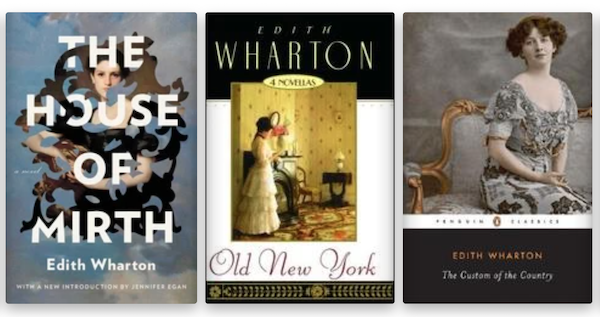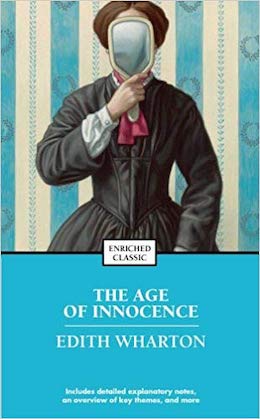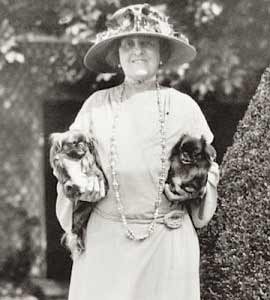Perceptive Quotes by Edith Wharton
By Emma Ward | On September 12, 2017 | Updated December 4, 2022 | Comments (0)

Edith Wharton (1862 – 1937), the esteemed American author, grew up in a wealthy family that didn’t think it was proper for a young woman of their society to be writer. Here’s a collection of perceptive quotes by Edith Wharton, who was ever observant about human nature and honest about the challenges of the writing life.
Though she initially lacked confidence, her first published works were steps to self-acceptance. Wharton lived a full life, building herself a mansion in Lenox, Massachusetts, living in France, aiding war refugees, and winning a Pulitzer Prize for her novel, The Age of Innocence (1921).
. . . . . . . . . .
“Set wide the window. Let me drink the day.” (Artemis to Actaeon and Other Verses, 1909)
. . . . . . . . . .
“After all, one knows one’s weak points so well, that it’s rather bewildering to have the critics overlook them and invent others that (one is fairly sure) don’t exist — or exist in a less measure.” (From a letter to Robert Grant, 1907)
. . . . . . . . . .
“I was never allowed to read the popular American children’s books of my day because, as my mother said, the children spoke bad English without the author’s knowing it.” (A Backward Glance, 1934)
. . . . . . . . . .
“There is one friend in the life of each of us who seems not a separate person, however dear and beloved, but an expansion, an interpretation, of one’s self, the very meaning of one’s soul.”
. . . . . . . . . .
“I have never known a novel that was good enough to be good in spite of its being adapted to the author’s political views.” (From a letter to Upton Sinclair, August 19, 1927)
. . . . . . . . . .
“Every dawning talent has to go through a phase of imitation and subjection to influences, and the great object of the young writer should be not to fear those influences, but to seek only the greatest, and to assimilate them so they become [her] stock-in-trade.” (From a letter, 1918)
. . . . . . . . . .
“True originality consists not in a new manner but in a new vision.” (The Writing of Fiction, 1925)
. . . . . . . . . .
“There are lots of ways of being miserable, but there’s only one way of being comfortable, and that is to stop running round after happiness. If you make up your mind not to be happy there’s no reason why you shouldn’t have a fairly good time.” (The Last Asset, 1904)
. . . . . . . . . .
Edith Wharton’s reflections on her writing life
. . . . . . . . . .
“The only way not to think about money is to have a great deal of it.” (The House of Mirth, 1905)
. . . . . . . . . .
“It was easy enough to despise the world, but decidedly difficult to find any other habitable region.”
. . . . . . . . . .
“How much longer are we going to think it necessary to be ‘American’ before … being cultivated, being enlightened, being humane, and having the same intellectual discipline as other civilized countries?”
. . . . . . . . . .
“If only we’d stop trying to be happy, we could have a pretty good time.”
. . . . . . . . . .
“I don’t know if I should care for a man who made life easy; I should want someone who made it interesting.”
. . . . . . . . . .

. . . . . . . . . .
“In spite of illness, in spite even of the archenemy sorrow, one can remain alive long past the usual date of disintegration if one is unafraid of change, insatiable in intellectual curiosity, interested in big things, and happy in small ways.”
. . . . . . . . . .
“Life is the only real counselor; wisdom unfiltered through personal experience does not become a part of the moral tissue. True originality consists not in a new manner but in a new vision.” (from The Writing of Fiction, 1925)
. . . . . . . . . .
“There are two ways of spreading light: to be the candle or the mirror that reflects it.” (from Vesalius in Zante, 1902)
. . . . . . . . . .
“Life is always a tightrope or a feather bed. Give me the tightrope.” (from a journal entry, 1926)
. . . . . . . . . .

Somber and Beautiful Quotes from Ethan Frome
. . . . . . . . . .
“Ah, good conversation – there’s nothing like it, is there? The air of ideas is the only air worth breathing.” (The Age of Innocence, 1920)
. . . . . . . . . .
“We can’t behave like people in novels, though, can we?” (The Age of Innocence, 1920)
. . . . . . . . . .
“I don’t know if I should care for a man who made life easy; I should want someone who made it interesting.”
. . . . . . . . . .
Edith Wharton’s Struggles with Self-Doubt
. . . . . . . . . .
“My little dog—a heartbeat at my feet.”
. . . . . . . . . .
“Habit is necessary; it is the habit of having habits, of turning a trail into a rut, that must be incessantly fought against if one is to remain alive.” (A Backward Glance, 1934)
. . . . . . . . . .
“The real loneliness is living among all these kind people who only ask one to pretend!” (The Age of Innocence, 1920)
. . . . . . . . . .
“Ah, good conversation – there’s nothing like it, is there? The air of ideas is the only air worth breathing.” (The Age of Innocence, 1920)
. . . . . . . . . .
“Each time you happen to me all over again.” (The Age of Innocence, 1920)
. . . . . . . . . .
“The real marriage of true minds is for any two people to possess a sense of humor or irony pitched in exactly the same key, so that their joint glances on any subject cross like interarching searchlights.” (A Backward Glance, 1934)
. . . . . . . . . .
“At last I had groped my way through to my vocation, and thereafter I never questioned that story-telling was my job…I felt like some homeless waif who, after trying for years to take out naturalization papers, and being rejected by every country, has finally acquired a nationality. The Land of Letters was henceforth to be my country and I gloried in my new citizenship.” (A Backward Glance, 1934)
. . . . . . . . . .

Duty and Desire: Quotes from The Age of Innocence by Edith Wharton


Leave a Reply